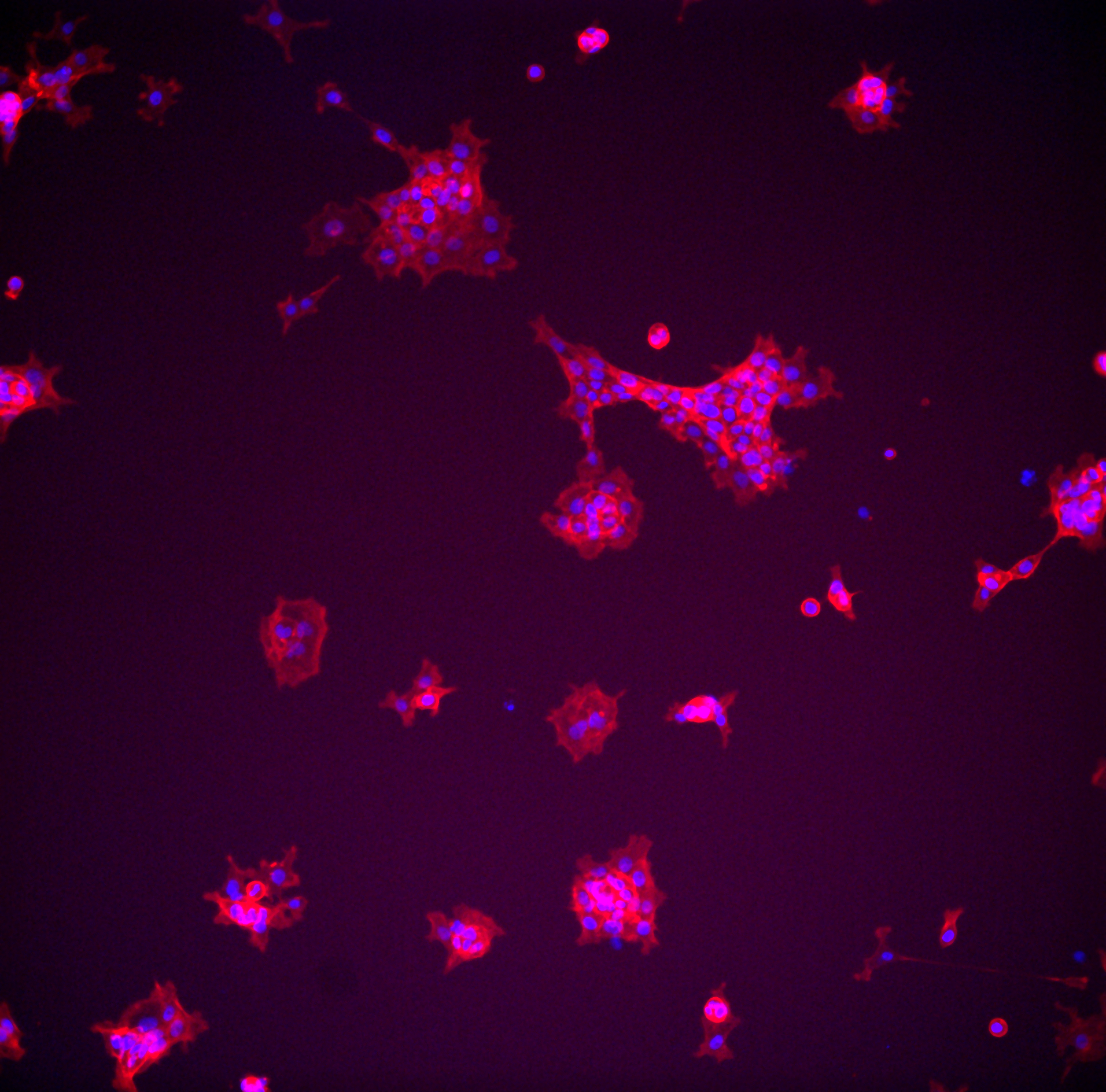Illustration (click to hide):

Project Description
Breast cancer is generally detected through screening mammography or palpable lumps, which is stiffer than the normal tissue surrounding. Normal breast displays a soft matrix (150-400 Pa) whereas breast cancer constitutes a stiffer microenvironment (5-10 kPa). Increased extracellular matrix (ECM) stiffness promotes cancer cell proliferation and invasion and is linked to poor breast cancer prognosis. Even though the link between ECM stiffness and increased breast cancer proliferation and invasion is clearly established, the underlying molecular mechanisms are still unclear. To pursue mechanotransduction research, we have established a polyacrylamide (PAA) gel-based model coating with reconstituted basement membrane (rBM) that allow us to vary the rigidity of the matrix independently of ECM ligand density. ECM stiffness promotes breast cancer cell growth and invasion; visible in our model as larger and more irregular cell clusters. Combined with global analyses, bioinformatics analysis and our experience, we performed one siRNA-based limited functional screening of genes selected from our previous global analyses identifying proteins upregulated by ECM stiffness. To test the function of these selected candidates in breast cancer progression, we established a pipeline using phenotypic changes as readout.
Project Information
-
BIIF Principal Investigators
- Gisele Miranda
External Authors
Staffan Strömblad, Feifei Yan -
Date
2019-10-24 🠚 2021-04-12